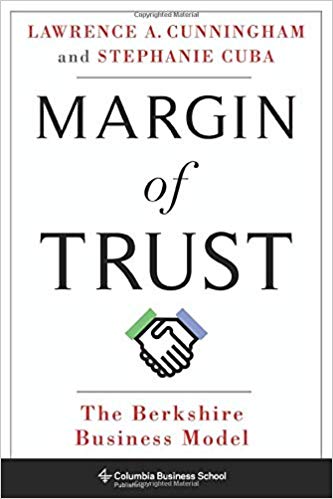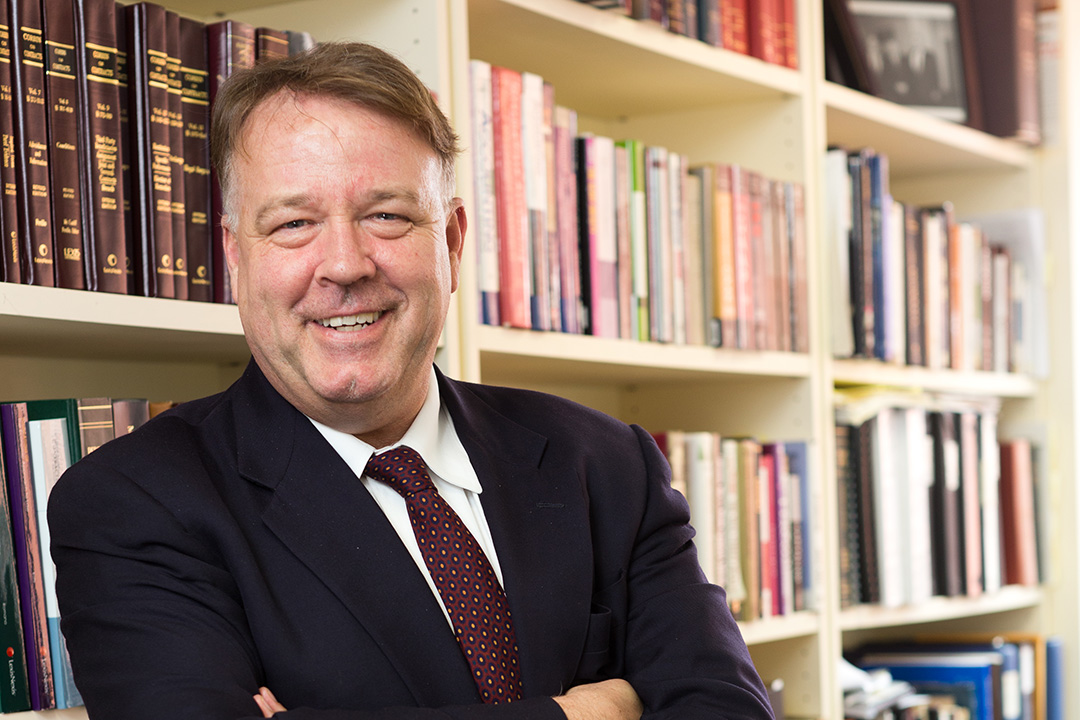Professor Lawrence A. Cunningham has written more than two dozen books on a wide range of business topics, with a focus on corporate life. His latest book, Margin of Trust: The Berkshire Business Model, synthesizes Warren Buffett’s management philosophy as he has developed it at his company, Berkshire Hathaway. While Buffett’s investment philosophy has been well-chronicled, including by Professor Cunningham, this is the first book to explain the iconic figure’s approach to business organization. The book identifies the distinctive secret sauce: trust.
Professor Cunningham is the Henry St. George Tucker III Research Professor of Law, Director of C-LEAF in New York, and Founding Faculty Director of GWNY, the Law School’s uniquely immersive business law program. We recently caught up with him to discuss Margin of Trust.
Q: What inspired you to write Margin of Trust?
LC: About a year ago, while working on another book project, I pulled together everything I’d written about Buffett and Berkshire over the past five years since my last book on the subject—law review articles, magazine essays, op-eds, blog posts—and a single theme leapt out: trust. I saw that Berkshire has built a culture where supervisors trust workers by granting them wide autonomy and workers vindicate that trust by exercising their autonomy productively.
As I reflected on this virtuous circle, I noticed how rare such a trust-based culture is in corporate America today. In fact, trust is a precious social good that seems to be in ever-shorter supply of late. Forces that impair trust come from many sides—abusers undermining it and reformers imposing controls that dilute it. Recounting the central role and value of trust is one way to help restore its standing and increase its supply.
Q: You have expert knowledge of Warren Buffett and Berkshire Hathaway, having written numerous books on his business method. What is one thing you've learned from him?
LC: Buffett is known among investors for advising only to buy stocks when the price you pay is way lower than the value you get—called the margin of safety. He deserves equal renown among the general public for this more profound advice: only do business with people when you trust them so much that you can grant them complete autonomy. This book mints the phrase margin of trust to capture that tenet. Of the hundreds of lessons Berkshire and Buffett offer, the most important one is the infinite value of trust in business and life.
Q: How will you use Margin of Trust in your instruction of GWNY students?
LC: I assign the book’s thunderous concluding chapter in our seminar on how to develop good judgment. We explore the appeal and limits of a trust-based culture, observing that, even when violations of trust occur, such a culture reinforces its value. This ties into how the GWNY program develops core professional and behavioral competencies.
GWNY immerses our students in the practice and study of business law at the highest levels—classes taught by the world’s finest business lawyers at the world’s leading law firms, and apprenticeships in the best business law field placements imaginable. At the instructional core of this experiential program are the vital intangible professional values, such as competence, confidentiality, zealous advocacy—and trust.
Q: In the book, you write that trust is the key to the Berkshire Method's success. Could you briefly unpack that statement?
LC: People thrive best when they are trusted most. Human beings crave autonomy. The predominant culture in corporate America today stresses internal controls and compliance. That puts more trust in process than people. Berkshire has outperformed rivals for a half-century because it values people over processes. Its culture of trust helps employees succeed, which helps the company and all other constituencies prosper, achieving a corporation’s ultimate purpose.
Q: What do you hope readers will gain from reading Margin of Trust?
LC: For all readers, to regain faith in trust in the workplace and the market; for regulators, general counsels, and compliance offers, to widen the space for trust when crafting corporate codes and rulebooks; and for employees, supervisors and other constituents, to realize how valuable autonomy is, and how being trustworthy helps to earn it.


